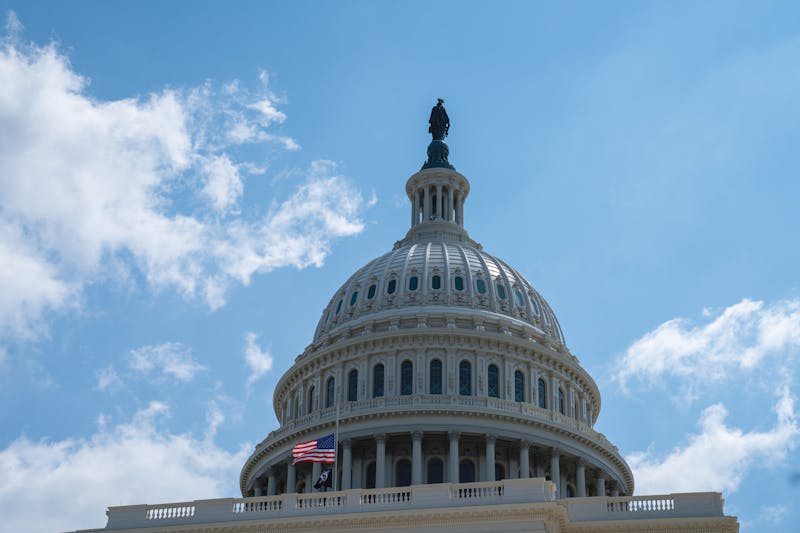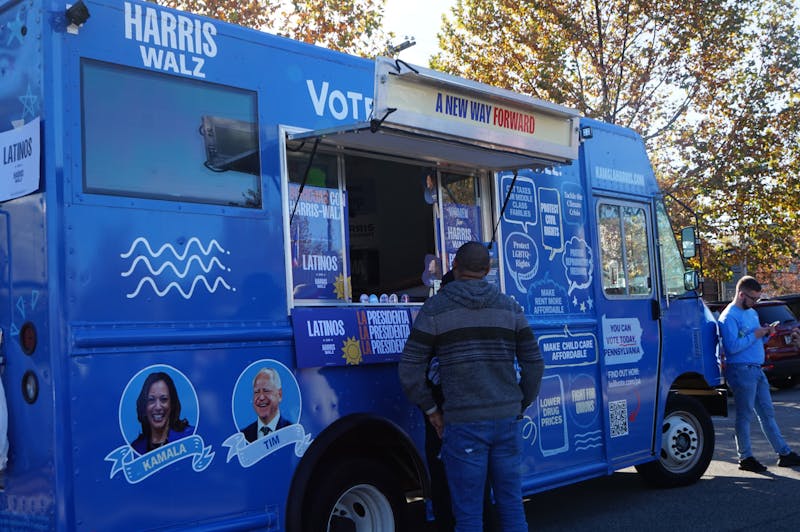
Columnist Elo Esalomi questions if DEI efforts made a real impact on marginalized groups.
Credit: Hannah ShumskyBlack History Month is a time of celebration. Across the country and on Penn’s campus, events highlight cultural milestones, honor achievements, and reaffirm the resilience of Black communities. But this year, alongside the joy, there is an undercurrent of apprehension — a fear that the progress made in the past few years is being systematically undone.
At the Becoming Everything You Are STEM conference that I attended last week, thousands of minority (mostly Black) students and professionals gathered, searching for jobs in an increasingly unforgiving hiring climate. The job market is brutal, but for minority candidates, the challenges are compounded by a massive rollback in diversity, equity, and inclusion programs. Once touted as necessary steps toward economic equality, these initiatives are now being quietly, or in some cases, loudly dismantled. Companies are scaling back policies, letting go of DEI-focused employees, and retreating from commitments they once publicly championed. But as these programs are stripped away, it raises an important question: Did they ever truly deliver tangible progress for the marginalized groups they claimed to help?
These past few months have made two things abundantly clear. Firstly, DEI was more about optics than outcomes. The push for diversity was rarely about fundamentally reshaping workplaces or industries: It was about looking the part. Many DEI initiatives, like hiring a chief diversity officer or hosting panels that spotlighted minorities, created surface-level change, without addressing structural barriers that kept marginalized groups from advancing in prestigious careers. Secondly, when the political and economic tides shifted, DEI was easy to discard. If these programs had been truly embedded in corporate values, they wouldn’t be vanishing so quickly. Their rapid disappearance suggests they were never central to business strategy. They were just a convenient and temporary PR move.
The end of DEI is particularly disheartening because I’ve met countless individuals who’ve worked tirelessly to champion diversity and create meaningful change within their communities. Yet, because large corporations failed to fully prioritize DEI, that change has become vulnerable to being easily dismantled.
Even at higher learning institutions, the retreat is visible. Penn, once vocal about its DEI efforts, has quietly taken down key web pages dedicated to these initiatives. This is not an isolated case. Across the country, universities and corporations are scrubbing DEI from their branding, wary of political and legal scrutiny. If these efforts had been genuinely transformative, would they be so easily erased?
This shift is reflective of a broader political movement. Under the new Trump administration, there has been a concentrated effort to clamp down on diversity training and DEI initiatives, which are considered a form of illegal discrimination. The Department of Education recently ordered universities to eliminate their DEI programs within two weeks or their federal funding would be entirely removed. Donald Trump has gone as far as to blame tragedies on the so-called dangers of DEI, further turning the term into a scapegoat. The term DEI has now joined the ranks of other politicized buzzwords — once “SJW” (Social Justice Warrior), “woke,” and now “DEI” — all repurposed to stoke resentment towards groups that are its perceived beneficiaries.
But let’s be honest. If DEI were truly effective, Black professionals wouldn’t still be fighting for a foothold in industries where they remain drastically underrepresented. The argument that diversity initiatives have somehow gone too far ignores the reality that these efforts never fully corrected historical disparities to begin with. The numbers don’t lie: Despite years of DEI initiatives, many industries still lack substantial minority representation, particularly as one ascends the corporate ladder, and economic gaps persist. In tech, for example, Black women still make up only 3% of the workforce — hardly evidence of a radical change from DEI.
So where does that leave us?
As companies and institutions distance themselves from DEI, we must remember: Diversity is not just a moral imperative; it is a source of strength. Research consistently shows that diverse teams outperform homogeneous ones, bringing innovation, adaptability, and broader perspectives. The fight for equity does not end because organizations choose to modify their commitments.
The BEYA conference was a stark reminder of this reality. Conversations with fellow attendees reflected a mix of hope and frustration — hope that the talent and ambition in the room would push through barriers, but frustration at the systemic shifts making it harder for minority professionals to succeed. Despite the setbacks, the determination was palpable. Many older attendees had seen this cycle before, and they assured us that the fight doesn’t stop just because the opposition grows louder.
Black History Month is a reminder of the resilience that has carried us through far worse setbacks. This is not the first time progress has been met with resistance, nor will it be the last. But history also tells us that change is not gifted: It is fought for.
Stay vigilant. Stay strong. The work continues.
ELO ESALOMI is an Engineering first year from London. Her email is eloe@seas.upenn.edu.
The Daily Pennsylvanian is an independent, student-run newspaper. Please consider making a donation to support the coverage that shapes the University. Your generosity ensures a future of strong journalism at Penn.
Donate












